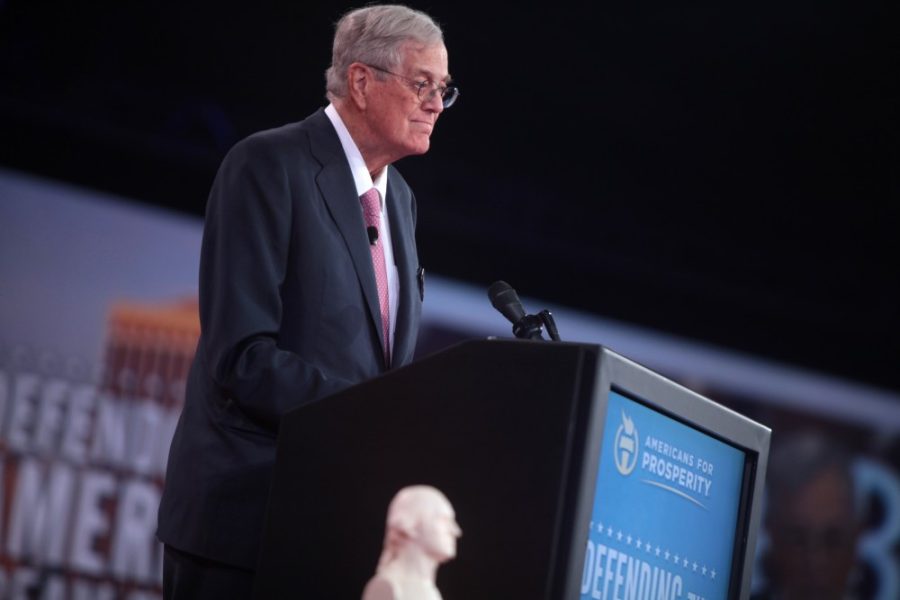A police officer stood ready outside the door of a Social Sciences building seminar room at the University of Arizona on Thursday Jan. 25. Inside, Jonathan Anomaly gave a talk on his paper “Public Goods and Education.”
Anomaly, program coordinator and professor for the Philosophy, Politics, Economics and Law program, tried to give this same talk four months ago and was met with around 30 protesters from the university and greater Tucson community.
The talk was advertised through the UA’s Center for the Philosophy of Freedom, better known as the Freedom Center, and was primarily intended for faculty, students and staff of the Philosophy and Moral Science Departments, but was open to all.
Anomaly’s paper discussed potential benefits of less government intervention in education and how public financing of education could “produce negative externalities by creating perverse incentives.” In short, it was a discussion on privatizing education.
Tensions were still high last September after the Arizona Legislature first cut funding to the university, then earmarked $2.5 million specifically for the Freedom Center.
Then, “a guy within the Freedom Center is to give a talk about privatizing education,” said Michael McKenna, philosophy professor and faculty member at the Freedom Center. He cited this chain of events as the reason for the negative response to Anomaly’s colloquium.
Anomaly’s September talk attempt was suddenly canceled. McKenna explained the cancellation as “an accident in planning.” The talk had been scheduled at the same time a graduate student was defending his dissertation, and several of the major philosophers, such as department head Jerry Gaus, would have missed the event.
An email circulated by Pima County’s Democratic Party Education Caucus called on public education supporters to attend the September lecture. The email read, “We cannot let this grotesque use of our public university to go unchecked. There will be a protest outside the building, but we also want people inside.”
According to Patrick Diehl, a member of Kochs Off Campus, the activists who attended included Arizonan Democratic politicians such as Bruce Wheeler, Billy Kovacs and Kristen Engel.
When the colloquium attempt was canceled, McKenna instead met with the protesters in the assigned room for an informal discussion, which was “still going hot and heavy after 90 minutes,” according to Diehl.
McKenna described some of the activists as unkind and said, though he didn’t like it, he welcomed the chance to talk to them.
“I was unhappy those people were raising the concerns they were raising, but I thought it was reasonable political protest,” he said.
The university prepared itself for a similar situation at Anomaly’s talk Jan. 25. In addition to the police officer, Chris Sigurdson, vice president of UA Communications, and Kathryn Adams Riester, campus safety coordinator, attended to ensure Anomaly was allowed to speak.
Despite the anticipation, the talk was a success. Adams Riester called it “a great representation of the academic process,” in which everyone legally participated. A mix of graduate students and philosophy professors attended and had priority in the question-and-answer session that followed.
Lining the room and asking more critical questions were several members of Kochs Off Campus, Tucson community members and interested professors from other departments.
Before the talk commenced, two attendees passed out a printed brochure and paper titled “Anomaly is No Anomaly,” arguing that the hiring of Anomaly is linked to the Koch brothers’ libertarian agenda.
Diehl said he saw Anomaly’s talk and function at the university as part of a nationwide project by Koch donors trying to influence public education.
Anomaly was hired by David Schmidtz, then-director of the UA Center for the Philosophy of Freedom, in fall of 2017. It was McKenna’s impression that Schmidtz “knew he was available and hired him last-minute.”
Prior to accepting the position at the UA, Anomaly was working for the philosophy department at Duke University. He said he chose to make the move because the UA’s program is the best.
“It is expanding while Duke’s is contracting,” he said.
Besides teaching, Anomaly plans to restart the PPEL club and work on “behind-the-scenes stuff to get students excited.”
Follow the Daily Wildcat on Twitter








